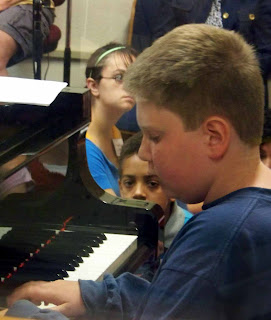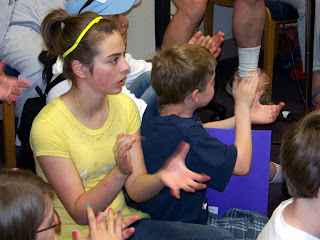Walking into the station this morning, I was met with a very different sound. The song's lyrics were sung in a different language. Passionate and beautiful, it was tinged with an unmistakeable sense of sorrow.
Gonzaga alumna Julia Riegel sat in the studio with Verne, explaining that the song, composed during the Holocaust, was part of her thesis presentation "Songs of Survival." For the project, she demonstrated how music from the Holocaust can contribute to understanding what it meant to be a prisoner in a concentration camp and to an overall understanding of that period in history.

For her part, Julia is fascinated by both the music and the history. She analyzed songs with the confidence of extensive research, barely glancing at any notes. She smiled as Verne played a song with a title translating into "It Burns."
"This is one of my favorites," she said. "It's so powerful - kind of like a rock song from the Holocaust."
Julia and Verne have been known each other since she played the viola in his youth symphony. "She was about two years old and came forth fully-formed," Verne joked. The two have shared a love of books and music for many years, and Verne attended Julia's original thesis presentation this past May, where she first explained her work on "Songs of Survival."
"She's really great," Verne said of Julia after the broadcast. "She's so bright and can express things just wonderfully."














